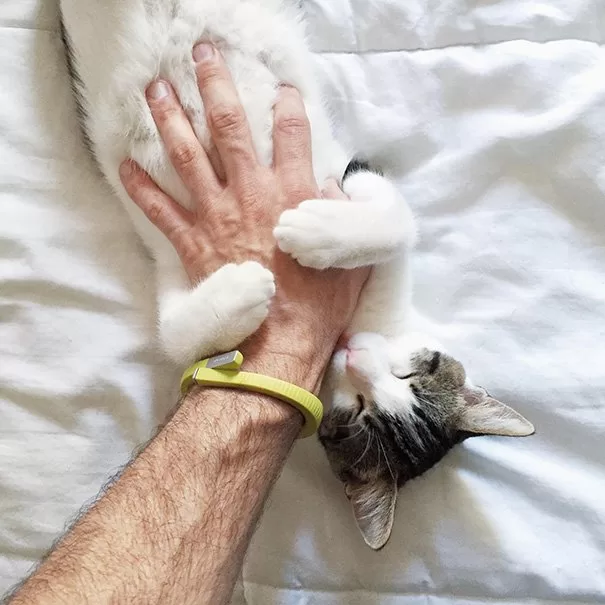Stress in Elderly Cats: Essential Care for a Relaxing Life
When it comes to senior cats, stress can have a significant impact on their health and well-being. Just like humans, cats can experience stress for a variety of reasons, and it is important to be aware of the signs and causes of this problem. In this article, we will cover the essential care to deal with stress in elderly cats, helping them to have a more relaxing and happy life.
Senior cats can show signs of stress in different ways. Some of the most common signs include changes in behavior, such as increased aggression, urinating outside the litter box, excessive vocalization or even the manifestation of compulsive behaviors. Additionally, stressed cats may experience physical changes, such as loss of appetite, weight loss, dull coat or even skin problems.
There are several causes that can lead to stress in elderly cats. Changes in routine, environment and even health problems can trigger stress. For example, the arrival of a new family member, such as a baby or another pet, may cause discomfort to the cat. Additionally, chronic pain due to joint problems or other medical conditions can also contribute to stress.
Fortunately, there are effective strategies for reducing stress in senior cats. One of the main ways to relieve stress is to provide a safe and calm environment for your cat. This may include creating comfortable rest areas away from noise and hustle and bustle. Furthermore, it is important to maintain a consistent routine, with regular times for eating, playing and relaxing.
In addition to physical care, elderly cats also need emotional care to deal with stress. This includes offering mental stimulation such as interactive toys and play sessions. Additionally, taking time to interact with and pet your cat can help reduce anxiety and promote a sense of security.
Preventing stress in elderly cats is also essential. Make sure your cat has a balanced diet appropriate for its age, and have regular check-ups with your veterinarian to monitor its health. Additionally, avoid exposing your cat to stressful situations, such as sudden changes in the environment or negative interactions with other animals.
In conclusion, stress in elderly cats is a common problem that requires specific care. By identifying signs of stress and understanding its causes, you can adopt effective strategies to reduce stress in your cat. Remember to provide a safe and calm environment, appropriate physical and emotional care, and prevent stressful situations whenever possible. With these measures, you will be helping your cat to have a more relaxing and happy life.
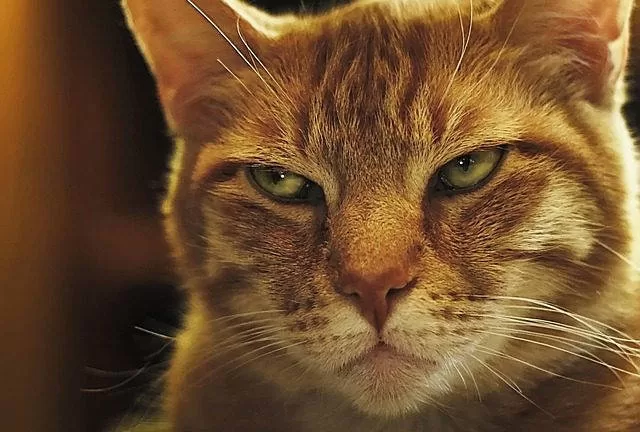
Signs of Stress in Senior Cats
Senior cats can be especially prone to stress, due to a variety of factors, such as changes in routine, health problems or simply natural aging. It is important to be aware of signs of stress in elderly cats in order to identify and treat the problem as early as possible. Here are some common signs of stress in senior cats:
1. Changes in behavior: If your senior cat begins to display unusual behaviors, such as hiding frequently, becoming more aggressive, or becoming overly vocal, it may be a sign of stress.
2. Dietary changes: Stressed cats may lose their appetite or start eating less. They may also start vomiting or have digestive problems.
3. Changes in elimination: A stressed cat may begin to urinate or defecate outside the litter box, even if it has been properly trained previously.
4. Excessive licking: Stress can lead to excessive licking behavior in cats. If you notice that your cat is obsessively licking itself and causing sores on its skin, it is important to investigate the underlying cause.
5. Social isolation: Stressed cats may isolate themselves from family members and avoid human contact. They can spend long periods hiding in quiet areas of the house.
It’s important to remember that signs of stress can vary from one cat to another, and unusual behavior does not necessarily indicate stress. However, if you notice several of these signs in your senior cat, it is recommended that you seek the guidance of a veterinarian for a proper diagnosis.
Additionally, it’s important to keep in mind that stress in senior cats can be related to underlying health issues, such as chronic pain, arthritis, or kidney disease. Therefore, it is essential to rule out any medical causes before assuming that stress is the sole cause of symptoms.
By identifying stress in an elderly cat, you can take steps to help minimize discomfort and improve their quality of life. From creating a calm, safe environment to implementing consistent routines, there are several strategies that can be adopted to reduce stress in senior cats. These strategies will be covered in detail in the next topic.
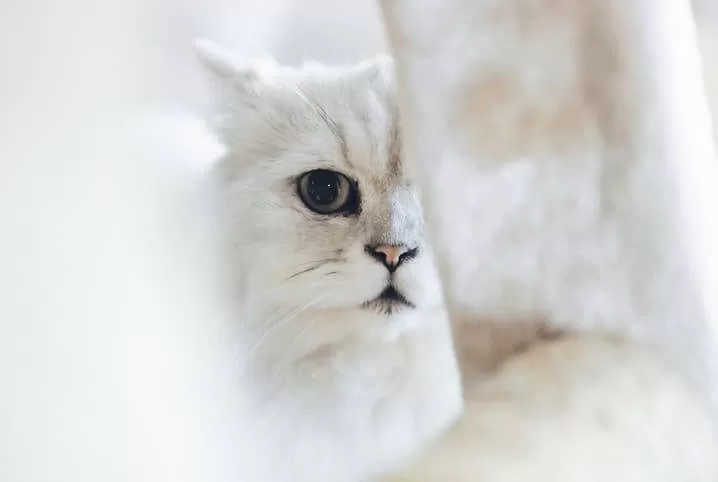
Common Causes of Stress in Senior Cats
Senior cats are susceptible to stress due to a number of factors. It’s important to recognize these common causes so we can help our feline friends deal with stress effectively.
One of the main causes of stress in elderly cats is a change in environment. This could include moving house, introducing a new pet or even renovating your home. Cats are creatures of habit, and any change to their environment can lead to feelings of insecurity and discomfort.
Another common cause of stress in elderly cats is the loss of a companion. If the cat had a close relationship with another pet or a family member who passed away, this can lead to feelings of loneliness and sadness, resulting in stress.
Health problems can also be a source of stress for senior cats. Chronic illnesses such as arthritis, kidney failure or dental problems can cause pain and discomfort, which will negatively affect your cat’s emotional well-being. Additionally, decreased vision or hearing can make the cat more vulnerable and anxious.
Aging itself can be a cause of stress in elderly cats. As they age, cats may experience changes in their daily routine, such as decreased physical activity or the need for a special diet. These changes can be stressful for cats who are used to a certain routine.
Finally, a lack of mental stimulation can also lead to stress in elderly cats. Cats are curious animals and need activities that challenge their brain. The lack of play, interaction with guardians and access to toys can result in boredom and stress.
Conclusion:
It is essential to identify the causes of stress in elderly cats so that we can help them deal with this situation appropriately. Providing a stable environment, offering regular veterinary care, and mentally stimulating our feline friends are some of the strategies that can be adopted to reduce stress in senior cats.
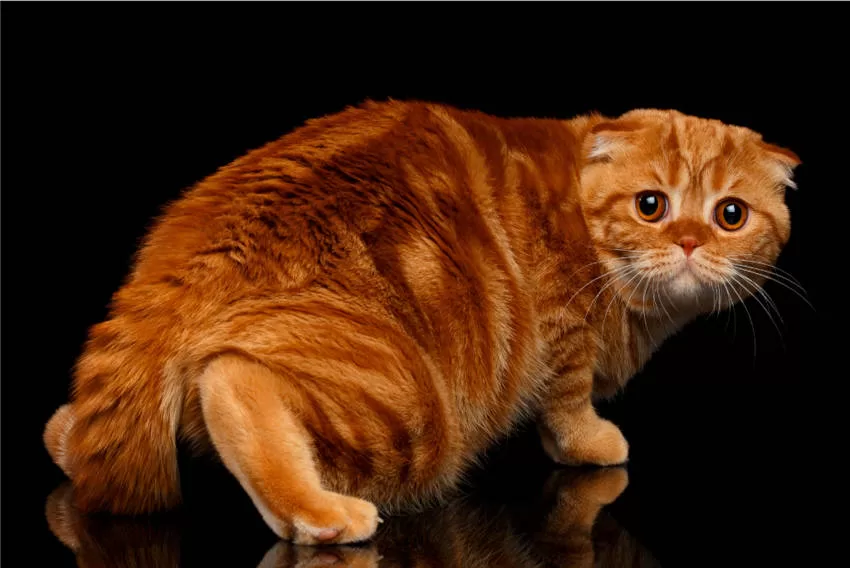
Strategies to Reduce Stress in Senior Cats
Senior cats are more likely to experience stress due to various physical and emotional changes in their lives. However, there are several effective strategies that can be implemented to reduce stress and promote your senior cat’s overall well-being. Here are some useful tips to help you:
- Create a calm and peaceful environment: Make sure the space where your cat spends most of its time is calm and peaceful. Avoid loud noises, maintain a comfortable temperature and provide an area where your cat can retreat and feel safe.
- Establish a consistent routine: Senior cats benefit from a predictable routine. Try to feed your cat at the same times every day and establish a regular routine for playing and interacting with your cat. This will help reduce anxiety and stress.
- Provide appropriate activities and toys: Senior cats can become bored easily, which can contribute to stress. Be sure to provide your cat with age-appropriate toys and activities, such as hunting toys or scratching posts. This will help keep you mentally stimulated and entertained.
- Offer a healthy diet: Proper nutrition is essential for the general well-being of elderly cats. Make sure you offer a quality food that is appropriate to your cat’s age and needs. A healthy diet can help strengthen your immune system and reduce stress.
- Provide social contact: Cats are social animals and need interaction with their owners. Dedicate time every day to play, pet and interact with your cat. This will help strengthen your bond and reduce your senior cat’s stress.
- Consider complementary therapies: There are several complementary therapies that can be beneficial for reducing stress in senior cats. Acupuncture, aromatherapy and massage therapy are some options to consider. However, it is always important to consult a qualified professional before using any complementary therapy on your cat.
- Watch for signs of stress: Watch for signs of stress in your senior cat, such as changes in appetite, changes in behavior, isolation or aggression. If you notice any of these signs, consult your veterinarian to investigate the cause of the stress and seek guidance on how to deal with the situation.
Dealing with stress in senior cats requires patience, understanding and dedication. By implementing these strategies, you will be helping your cat live a happier, healthier life. Always remember that each cat is unique and may respond differently to different stress reduction techniques. Therefore, it is important to observe and adjust strategies according to your cat’s individual needs.
Physical Care for Stressed Senior Cats
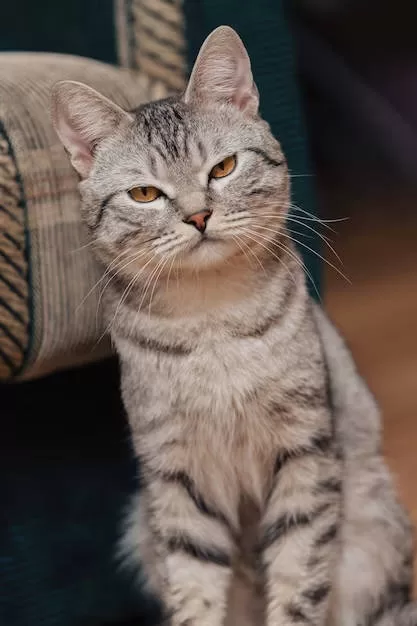
Stressed senior cats may show a variety of physical signs of stress, such as loss of appetite, changes in sleeping patterns, weight loss, dull coats, and recurring health problems. To manage stress in senior cats, it is important to provide the appropriate physical care to help them feel more relaxed and comfortable.
1. Balanced diet: Offer an adequate and balanced diet for your elderly cat, taking into account its specific nutritional needs. Consult a veterinarian for recommendations on the best food for your cat.
2. Hydration: Make sure your cat has constant access to fresh, clean water. Elderly cats may be more prone to dehydration, which can worsen stress. Consider offering a moving water source, such as an electric fountain, to encourage water consumption.
3. Quiet environment: Create a calm and peaceful environment for your elderly cat. Avoid loud noises, sudden movements and any stimulus that may cause stress. Also provide comfortable and cozy resting places where the cat can feel safe.
4. Exercise: Encourage your elderly cat to exercise regularly, according to its physical capacity. Gentle play and interactive toys can help reduce anxiety and stress. However, it is important to respect your cat’s limits and not force him to exercise excessively.
5. Proper hygiene: Keep your elderly cat’s hygiene up to date. Brush his coat regularly to remove loose hair and stimulate blood circulation. Also, always keep the litter box clean to avoid discomfort and stress.
6. Thermal comfort: Elderly cats may be more sensitive to temperature variations. Make sure your cat has a comfortable and suitable place to rest, protected from excessive cold and heat.
7. Regular vet visits: Take your senior cat for regular veterinary appointments. A professional will be able to assess your cat’s health and identify any problems that may be causing stress. In addition, your veterinarian will be able to recommend appropriate treatments and medications to help manage stress.
Dealing with stress in elderly cats requires comprehensive care, which involves both physical and emotional aspects. By providing adequate physical care, you will be helping your cat to feel calmer and more relaxed, contributing to an improved quality of life.
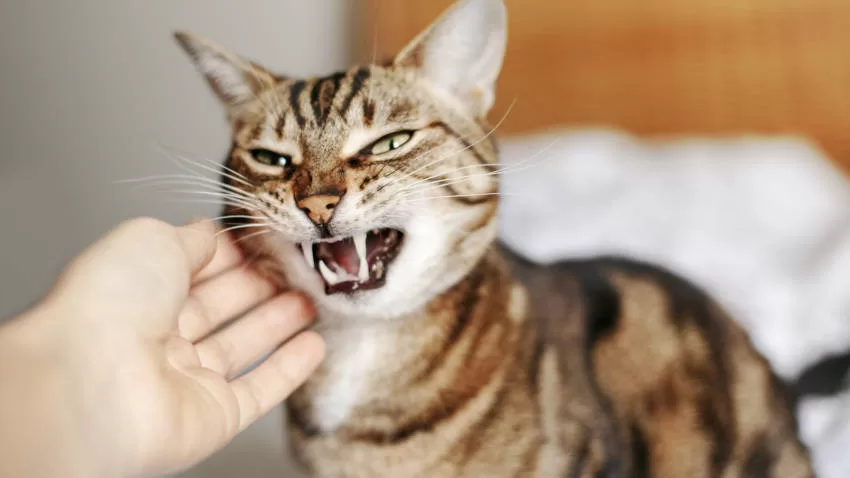
Emotional Care for Stressed Senior Cats
In addition to physical care, it is also important to provide emotional care for elderly cats who are experiencing stress. Just like humans, cats have emotions and can feel anxious, sad or stressed in certain situations. Here are some strategies to help deal with emotional stress in senior cats:
1. Provide a safe and peaceful environment
It is essential that the environment in which the cat lives is safe and peaceful. Make sure he has access to an area where he can hide and feel safe, like a crate or cozy corner. Avoid loud noises and stressful situations that could scare the cat.
2. Offer stimulating toys and activities
Stimulating toys and activities can help distract your cat and provide a source of pleasure and fun. Interactive toys, scratching posts and hunting games are great options to keep your cat occupied and mentally stimulated. Additionally, set aside time every day to play with your cat, stimulating it physically and mentally.
3. Maintain a consistent routine
Cats are animals of routine and feel safer when they have a consistent routine. Maintain regular times for eating, playing and resting times. Avoid sudden changes in routine, as this can cause stress and anxiety in your cat.
4. Provide affection and attention
Showing affection and attention to your cat is essential to help them feel safe and loved. Set aside time every day to pet and pamper your cat, showing that you care about him. This helps to strengthen the emotional bond between you and reduce the cat’s stress.
5. Use feline pheromones
Feline pheromones are chemical substances naturally produced by cats that help transmit messages of calm and safety. There are commercial products that contain synthetic pheromones, such as diffusers and sprays, which can be used to create a calmer environment and reduce your cat’s stress.
6. Consult a veterinarian or feline behaviorist
If your cat’s stress persists or worsens, it is important to seek professional help. A veterinarian or feline behaviorist can assess the situation and recommend additional strategies for dealing with your cat’s emotional stress. They may suggest behavioral therapies, medications, or other interventions appropriate for your cat’s specific case.
By following these strategies, it is possible to provide adequate emotional care for stressed senior cats. Remember to be aware of your cat’s signs of stress and take steps to help your cat feel better. A happy, stress-free cat will lead a healthier, more balanced life.
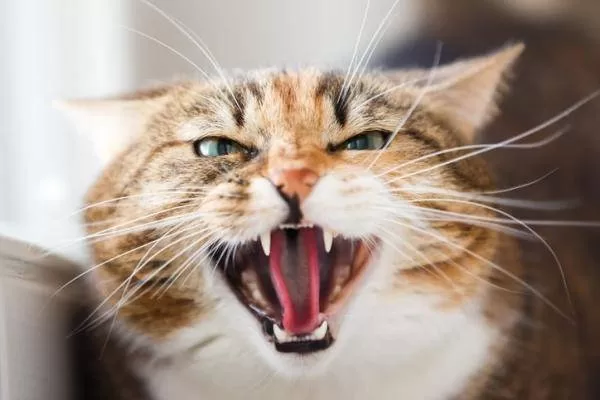
Preventing Stress in Senior Cats
Preventing stress in elderly cats is essential to ensure a good quality of life for them. Here are some steps you can take to help prevent stress in your senior cat:
1. Provide a calm and peaceful environment
Cats are sensitive animals and benefit from a calm, peaceful environment. Be sure to create a space for your senior cat where he can retreat and relax. This could be a quiet area of the house, away from loud noises and constant movement.
2. Maintain a consistent routine
Senior cats feel safer and more comfortable when they have a consistent routine. Try to feed your cat at the same times every day and maintain a regular schedule for play and interaction. This will help reduce anxiety and stress.
3. Provide mental stimulation
Senior cats still have a need for mental stimulation. Be sure to provide interactive toys, scratching posts, and even hunting games to keep your cat mentally stimulated. This will help reduce boredom and anxiety.
4. Avoid sudden changes
Cats are animals that like routine and sudden changes can cause stress. Avoid making major changes to your senior cat’s environment or routine unless absolutely necessary. If there is an unavoidable change, try to make the transition gradually so your cat can adapt better.
5. Offer a balanced diet
A balanced diet is essential for the health and well-being of elderly cats. Make sure you provide adequate, quality food, according to your cat’s specific needs. Also, always keep fresh water available to avoid dehydration, which can be a stressful factor.
6. Provide moments of relaxation
Just like humans, cats also need moments of relaxation. Take time to pet and pamper your senior cat, providing moments of affection and calm. This will help reduce stress and strengthen the bond between you.
7. Consult the veterinarian regularly
Regular vet checks are essential to check your senior cat’s health and identify any health problems that may be causing stress. Your veterinarian will be able to perform exams and provide specific guidance to keep your cat healthy and stress-free.
By following these prevention measures, you will be helping your elderly cat to have a calmer and happier life, reducing stress and providing an environment conducive to their well-being.
Final Thoughts and Additional Resources
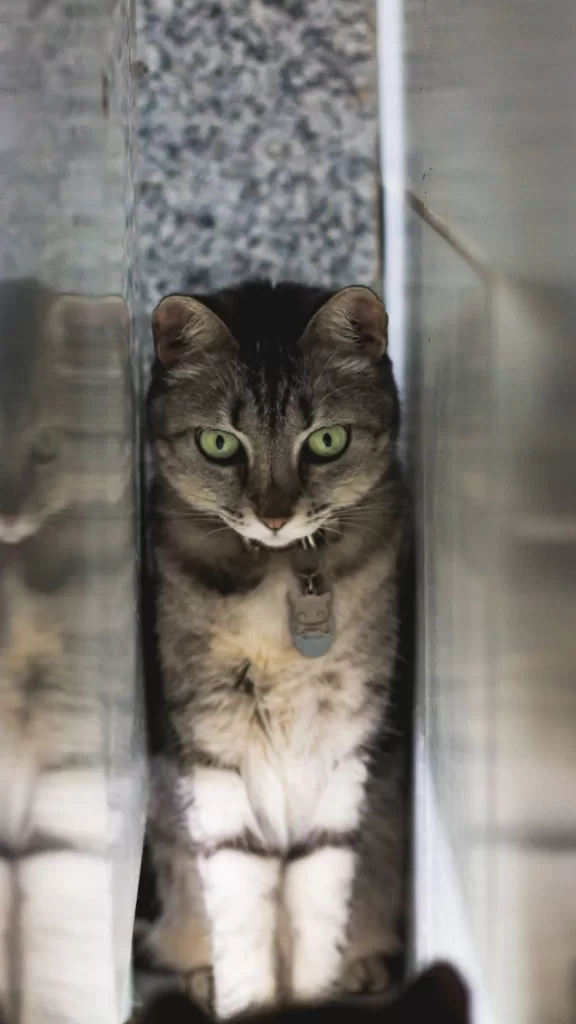
When dealing with stress in senior cats, it is important to remember that each cat is unique and may respond differently to stress reduction strategies. Therefore, it is crucial to closely observe your cat’s behavior and adjust approaches when necessary.
Additionally, it is always recommended to consult a veterinarian to rule out any underlying health issues that may be contributing to your cat’s stress.
Here are some additional tips to help manage stress in senior cats:
- Consistent routine: Try to establish a daily routine for your cat, including times for feeding, playtime and quiet time. This can help create a predictable and comforting environment.
- Environmental enrichment: Provide interactive toys, scratching posts, shelves and other items that can stimulate your cat’s interest and mental exercise. This can help reduce stress and boredom.
- Avoid abrupt changes: Elderly cats can be sensitive to changes in the environment. Try to avoid drastic changes to routine, furniture or introducing new pets if possible.
- Calm communication: Avoid yelling, scaring or acting aggressively towards your cat. Instead, use calm, gentle language when communicating with him.
- Adequate rest: Make sure your cat has a quiet, comfortable place to rest, away from excessive noise or commotion.
In addition to these tips, there are several complementary therapies that can help reduce stress in elderly cats, such as aromatherapy, music therapy and therapeutic massage. However, it is important to research and consult a professional before trying these approaches.
Dealing with stress in senior cats can be a challenge, but with patience, observation and the right strategies, you can help improve your pet’s well-being. Remember that affection, attention and care are key to helping your cat feel safe and relaxed.
External Links:

